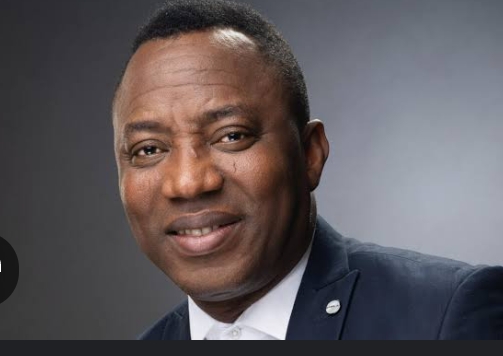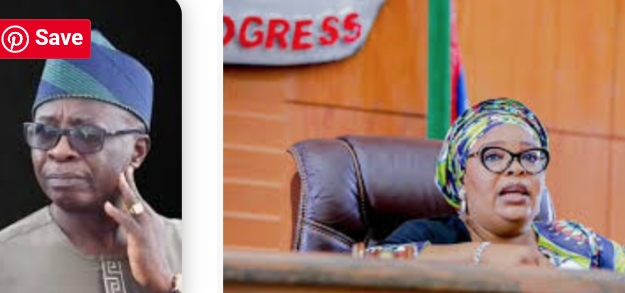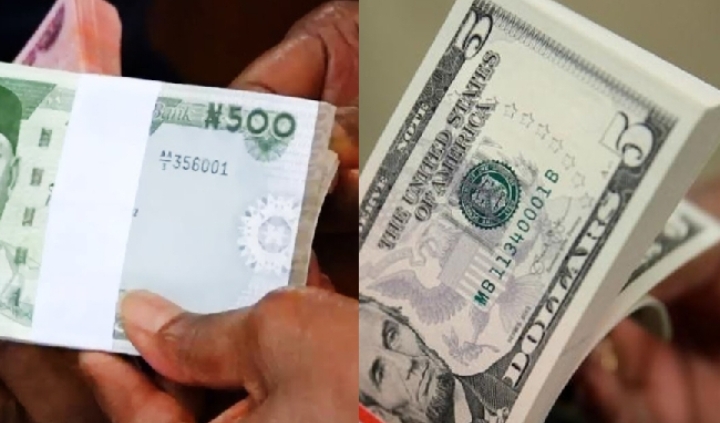News
Tariff Hike: TCN, DISCOs bicker over failing 20-hrs supply

With Band A customers expressing anger over the failure of electricity Distribution Companies, DisCos, to meet the 20-hour minimum supply, some communities have approached their respective DisCos, requesting to be downgraded to Band B.
The communities, Vanguard gathered, are insisting that since they were not getting the promised 20 hours per day, they should not be forced to pay the N225 per kilowatt hour tariff increase ordered by the Nigerian Electricity Regulatory Commission, NERC.
However, findings by Vanguard indicated it was not entirely the fault of DISCOs as the power allocation from the upstream value chain has declined significantly, making it difficult for the DisCos to meet up with the minimum supply benchmark.
Data supplied by Independent System Operator, at the weekend, showed that load allocation to the eleven DisCos stood at 2,989 Megawatts, a significant drop from the 4,200MW average needed to meet the tariff requirement.
The data indicated that Abuja Disco got the highest allocation of 461 MW, down from 611MW recorded a few days ago. It was followed by Ikeja Electric at 455MW, Eko DisCo at 387MW, Ibadan DisCo at 360MW, Benin DisCo at 245MW, and Enugu DisCo at 216MW.
Others were Port Harcourt DisCo 213MW, Kano DisCo 202MW, Kaduna Electric 195MW, Jos DisCo 170MW and Yola DisCo 85MW.
Meanwhile, a source in Eko DisCo said the company was meeting up with the prescribed minimum of 20 hours but explained that what they do is that on some days they supply more than the minimum, and they cut back the excess supply from the minimum supply the following day, a situation which may have left the consumers with the impression of under-supply.
He advised that the consumers should track average supply over a period of time.
TCN, DisCos trade blames
Meanwhile, the Transmission Company of Nigeria, TCN, has publicly disagreed with the DisCos over failure to meet the 20-hour minimum electricity supply demand. Benin, Ibadan, and Port Harcourt DisCos had in a notice to consumers attributed the failure to challenges faced by TCN.
Benin DisCo disclosed that problems at the Amukpe transmission station led to over seven hours of outage while faults at the Effurun transmission station also led to over eight hours of outage.
But TCN in a statement said that was not the true picture.
According to TCN General Manager, Public Affairs, Ndidi Mbah, “the incorrect attribution of these faults to TCN is clearly shown in the table on the release by IBEDC.
“For clarity, we note that on the 11th of April 2024, the Amukpe 33KV feeder tripped at 2:31 pm and was restored by 4.08 pm, within one hour and 54 minutes. The cause of the outage, which was clearly under BEDC purview, was an instantaneous earth fault caused by stormy weather, which was restored on trial reclosure after the rain had subsided.
“Still, on the 11th of April 2024, Effurun 33KV feeder tripped at 12:25 p.m., and it is still out. The cause of the tripping was an earth fault on the outgoing feeder upriser, also from the BEDC DISCO end”.
On Ibadan DisCo claims that TCN is responsible for its failure to deliver estimated hours of supply to Band A customers due to system outages and tripping on TCN’s feeders, Mbah said after investigation it was established that the feeders mentioned “are not within the TCN network. This means that most of the listed feeders in the publication are 11kV operated by IBEDC and completely outside TCN’s Operational Control and in IBEDC’s network.
“That the reasons given for the outage on IBEDC 11kV and 33kV are earth/over current faults, which have no bearing on TCN’s frequency control operations.
“That the statement by IBEDC has been verified by TCN’s regional management in Osogbo in conjunction with IBEDC Officials themselves and has been proven to be false, necessitating necessary corrections being made.
“While TCN sees this misinformation of IBEDC as a ploy to undermine and mislead the public against regular power supply, we remain focused on supporting the government’s move towards a more robust and efficient power supply”, she added.
Total supply remains insufficient — Consumer Network
In an interview with Financial Vanguard, weekend, the President, Nigeria Consumer Protection Network, Mr. Kunle Olubiyo, said: “What we are currently is a service-based tariff. Consumers should pay based on the value they derive. But even at the estimated peak supply of 5,800MW, it would still be difficult to meet the demand of 20 million – 30 million electricity consumers in Nigeria.
“Currently, some consumers in Band A have enough while others do not. For instance, in my area in Garki, Abuja, the Abuja DisCo has been able to provide us with not less than 22 hours of power supply daily. The level of outages is very minimal. But we cannot generalize because the people of Mararaba, still in Abuja may have less than 10 hours.
“However, I am pleased with the response of NERC. The regulator has been proactive in tackling issues, especially listening to consumers and sanctioning the DisCos, where necessary.
“But NERC should do more. It should compel the DisCos to provide details, including the Bands of consumers in receipts paid by consumers. This will enable them to know their bands because many people do not even know their bands. Many people started showing interest because of the removal of subsidy, which now makes electricity expensive for Band A consumers. Many consumers did not care before because power was relatively cheap.”
Band A, others were proposed in 2020 — PowerUp Nigeria
Similarly, in another interview with Financial Vanguard, the Executive Director, PowerUp Nigeria, Adetayo Adegbemle, who harped on the need to invest in infrastructure to deliver more power to consumers, said: “The Bands are already four years old.
They were introduced in 2020 along with the Service Based Tariffs, which says locations with advanced infrastructure and that can deliver more energy to consumers should be allowed to do, and the consumers pay a tariff that reflects the hours, or bands, they receive and enjoy.
“So, Band A with a minimum of 20 hours daily power supplies was introduced as the Premium band. Other locations within the country cannot enjoy as much energy because of weaker and inadequate infrastructure. They are also divided into Bands.
“So we have Band A which enjoys between 20 and 24 hours per day, Band B gets between 16 and 19 hours per day, Band C gets between 12 and 15 hours, Band D which gets 8 and 12 hours, and Band E gets a minimum of 4hours per day.
There is Band E in some locations as well, depending on the ability to get power to these places. When you look at it the kind of infrastructure in places like Maitama, Ikoyi, Surulere, Jos, and Asokoro cannot be compared with infrastructure in places like Mowe, Ibafo, Ologuneru, and a lot of newly developed sites.
“So, what the new tariff implies is that subsidy has now been withdrawn from Band A Customers, accounting for 15% of total customers on the grid. Let me also say that this subsidy removal affects only those in Band A. So, if you are not on Band A, you are not affected by the new tariff.
“As I said earlier, one of the major factors that determine these bands is the quality of infrastructure in these areas; another is the volume high of consumption of energy in these areas.
“One thing that is also common with these locations is that they are mostly affluent and high-income areas of society and they represent a disproportionately high share of energy consumed relative to their share of the customer population
“We have major industries also covered. Many of the maximum demand users (industries and productive users of electricity) are covered under Band A feeders, thereby catalyzing industry as a vehicle for economic development.
“This increased energy supply to these feeders will reduce their net energy spend because otherwise, they would have to depend on diesel generating sets, which cost more than two times that of grid energy per kWh.”
DisCos to set up response teams
He said: “DisCos are mandated to set up a rapid response team to ensure effective service delivery on the committed minimum hours of supply to each service Band commencing with Band A feeders.
Where a DisCo fails to meet the committed service level of a feeder for consecutive seven (7) days, the feeder shall be automatically downgraded to the recorded level of quality of supply.
“We still have a huge metering gap unfilled, and this is one of the reasons many Nigerians are kicking against the removal of this subsidy. But I understand that the Commission is working on the liberalization of Metering. I would have recommended what I called Meter Franchising.
It is more like the present Meter Assets Providers, but in this case, investors can take up a Feeder on a Franchise, and install Meters to every Customer on the Feeder. They can recoup their money via recharge. The Commission can also chart a cost recovery for such investment.”
Reverse hike to avert further misery, suffering — Electricity workers
Meanwhile, workers in the nation’s power sector have asked the Federal Government to stop deceiving Nigerians over the 300 percent hike in electricity tariff, and called for it reversal to avoid further socioeconomic woes.
“While advising the government to come clean on the hike and not being economical with the truth, they described the hike as nothing but another anti-people policy.“Under the aegis of the National Union of Electricity Employees, NUEE, the workers warned that if any of their colleague is attacked in the line of duty over the tariff hike, they would shut down power supply nationwide without notice.
“In a statement titled “Hike in electricity tariff I – Danger looms”Acting General Secretary of the Union, Dominic Igwebike, stated: “NUEE is one of the critical stakeholders in the electricity sector and it has been our major concern to see the delivery of constant, sustainable, clean, and affordable Electric Power to our dear Nation.
“There has not been any meaningful improvement since after the privatization of the Power Sector. The country has an installed capacity of about 14,000MW but generates about 4,803MW. But , Nigeria needs at least 30,000MW to reach sufficiency.“
“The recent hike in electricity tariff from N68 /kwh to N225 /kwh is absurd in a country where the majority of the masses are grappling with basic survival and an electricity access rate of about 55 percent.“
“The justification given by NERC, is that the hike is attributed to only Band A consumers who make up only 15 percent of electricity consumers and utilize 40 percent of the nation’s electricity consumption.
Vanguard News
News
Angry Sowore slams security operatives at Abuja court gate who tried to block him

By Kayode Sanni-Arewa
Angry Omoyele Sowore, The Publisher of Sahara Reporters and former presidential candidate of the African Action Congress (AAC), Omoyele Sowore, on Monday clashed with security operatives who wanted to stop him from entering the Federal High Court in Abuja.
The security cordon of the court gate by operatives drawn from Nigeria Police Force and the Nigeria Security and Civil Defence Corps (NSCDC), was emplaced because of the trial of the former Kogi State governor Yahaya Bello.
Bello is charged with money laundering and misappropriation of public funds.
In a video posted on his X account on Monday, Sowore, singlehanded, dared the security operatives, questioning their authority to prevent his entry.
“Why are you shouting at me? Do I look like Yahaya Bello?” he asked.
“I have business in court. I don’t need to be cleared by either the police or EFCC because none of you is an officer of the court.
“This is a Federal High Court; bring court officials, and I will talk to them. EFCC brought me to court, and they are still harassing us.”
“You have no right to stand in front of the high court. You are not my lawyer and have no right to know my case,” he stated in response to a request by one of the security operatives to know the particulars of his case.
Overwhelmed by Sowore’s readiness to make big trouble and possibly expose the errors by the security operatives, one of the senior officers eventually directed that Sowore be allowed to enter.
Condemning the incident, Sowore wrote, “The justice system in Nigeria has been hijacked by uniformed, uncouth security agents ranging from @OfficialDSSNG, @PoliceNG, and @CivilDefenceNGR. Today, they mounted illegally in front of the court, harassing everybody because of a thief, Yahaya Bello @officialgybkogi. The same Yahaya Bello they couldn’t apprehend for months; even lawyers were harassed, and the @NigBarAssoc should stop this nonsense.”
In January 2025, Sowore was arrested and charged with 17 counts under the Cybercrime Act for referring to Inspector-General of Police (IGP) Kayode Egbetokun as an “illegal IGP” on his social media platforms.
In the charges, it was alleged that Sowore’s statements were intended to cause a breakdown of law and order.
Sowore’s arrest sparked criticisms from various human rights organizations, which viewed the charges as an attempt to suppress voice of dissent and freedom of expression.
News
Just in: David Setonji May Become New LSHA Speaker Meranda To Step Down

By Kayode Sanni-Arewa
The Speaker of the Lagos State House of Assembly, Princess Mojisola Meranda, may step down to allow either Mr. David Setonji or Mr. Wale Rauf to assume the position of speaker.
This development follows intervention efforts by prominent political figures, including former APC National Chairman and ex-Osun State Governor Chief Bisi Akande, former Ogun State Governor Aremo Olusegun Osoba, and Chief Pius Akinyelure, Chairman of the Board of the Nigerian National Petroleum Company Limited.
Meranda made history as the first female Speaker of the House on January 13 after the removal of Mudashiru Obasa, who faced allegations of corruption, abuse of office, and high-handedness. However, Obasa has since challenged his removal in court, arguing that due process was not followed.
Sources reveal that key political figures held an initial meeting with principal officers and House members over the weekend, with another meeting expected soon.
It is speculated that Meranda may be asked to return to her former position as Deputy Speaker, while one of the two lawmakers from Lagos West—David Setonji (Badagry 2) or Wale Rauf (Amuwo Odofin 2)—could become the next Speaker.
David Setonji is currently the Chief Whip of the House and has served as a lawmaker since 2015.
Wale Rauf has been in the House since 2019.
This arrangement is reportedly influenced by regional representation in state leadership. Presently, Governor Babajide Sanwo-Olu and Speaker Mojisola Meranda are both from Lagos Central, leaving Lagos West without a top leadership position. Given that Obasa hails from Lagos West, stakeholders have recommended that the next Speaker be chosen from the district.
Despite these developments, 36 out of 40 lawmakers passed a vote of confidence in Meranda on Monday, February 17, affirming their support for her continued leadership. However, the House adjourned sitting indefinitely, leaving room for further negotiations.
News
SEE Black Market Dollar To Naira Exchange Rate Today 26th February 2025

By Kayode Sanni-Arewa
Black Market Dollar To Naira Exchange Rate Today 26th February 2025 Can Be Accessed Below.
IMPORTANT NOTE: The exchange rate changes hourly. It depends on the volume of dollars available and the Demand. This means that…you can buy or sell 1 dollar at a certain rate and the price can change (high or low) within hours.
The official naira black market exchange rate in Nigeria today including the Black Market rates, Bureau De Change (BDC), and CBN rates
What’s the dollar to naira black market today 14 January 2025?
The exchange rate for a dollar to naira at Lagos Parallel Market (Black Market) players buy a dollar for ₦1520 and sell at ₦1530 on
Monday 24th February, 2025, according to sources at Bureau De Change (BDC).
Dollar to Naira Black
Market Rate Today
Dollar to Naira (USD to NGN) Black
Market Exchange Rate Today
Buying Rate ₦1520
Selling Rate ₦1530
Dollar to Naira CBN Rate Today
Dollar to Naira (USD to NGN) CBN Rate Today
Highest Rate ₦1509
Lowest Rate ₦1491
Please note that the Central Bank of Nigeria (CBN) does not recognize the parallel market (black market), as it has directed individuals who want to engage in Forex to approach their respective banks.
-

 Opinion23 hours ago
Opinion23 hours ago*OBASANJO’S WEEKEND PILGRIMAGE TO VATSA’S VILLAGE*
-

 News20 hours ago
News20 hours agoFG Shifts Council Meeting Amid Osun LG Crisis
-

 News22 hours ago
News22 hours agoSee How Naira Is Fairing Against The Dollar In Black Market Today February 24, 2025
-

 News22 hours ago
News22 hours agoSenate invites ‘Brekete’ Family host Ahmad over broadcast controversy
-

 News20 hours ago
News20 hours agoJust in: Tinubu, Party Leaders Reach Accord On Lagos Assembly Crisis
-

 News22 hours ago
News22 hours agoGazette Confirms Gowon Actually Ordered Awolowo’s Release, Not Ojukwu or Ironsi
-

 News23 hours ago
News23 hours agoFuel Crisis looming as Truck Drivers Protest Against Lagos Task Force
-

 News18 hours ago
News18 hours agoMore financial trouble for Nigerians as DStv, Gotv set to increase subscription fee







